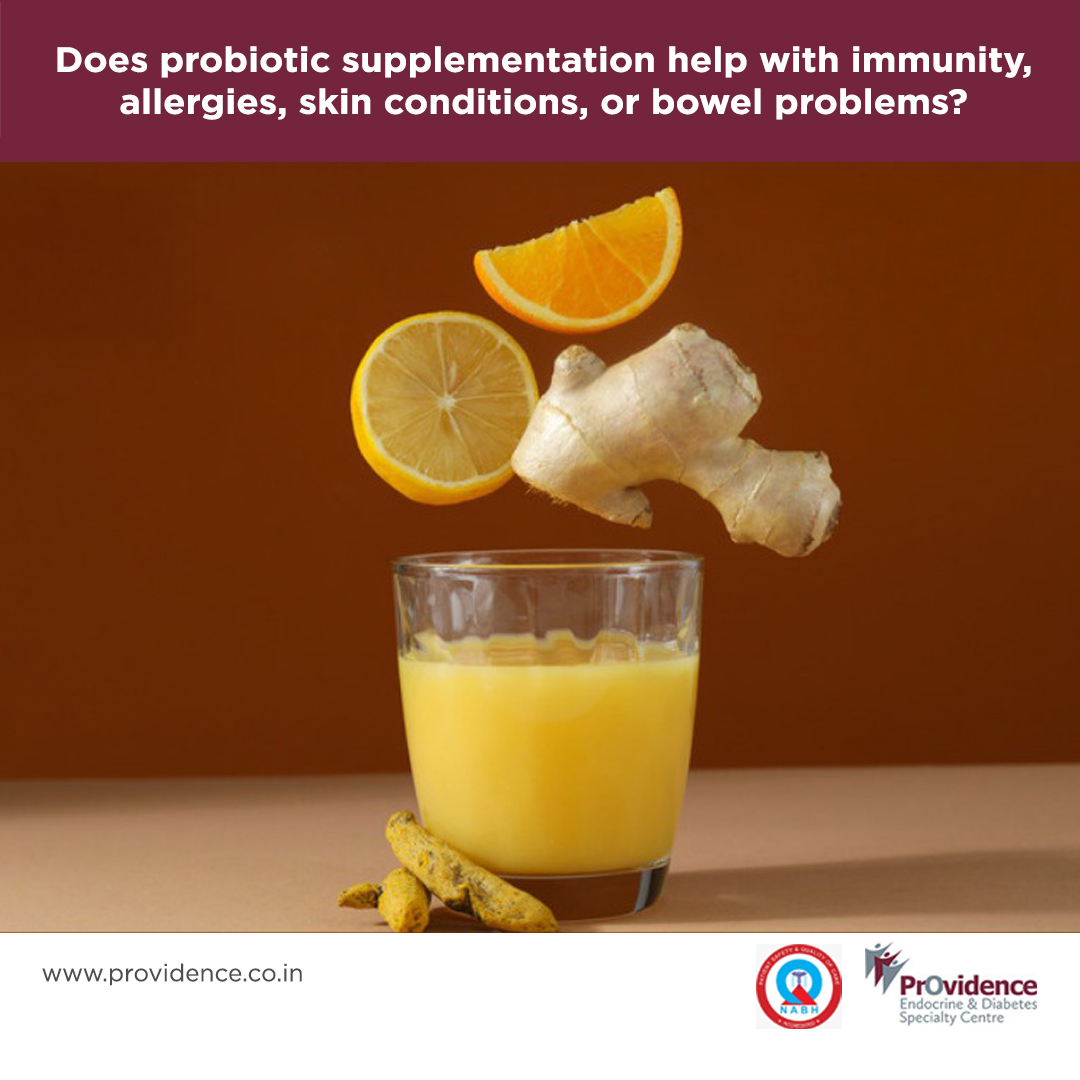Probiotics are live microorganisms that, when administered in adequate amounts, can provide a health benefit to the host. They work primarily by influencing the balance of the gut microbiome, which is strongly linked to the immune system and other bodily functions.
Immunity: A significant portion of your immune system is located in your gut. Probiotics can help “train” immune cells to recognize and fight off harmful pathogens, and they can also boost the production of natural antibodies. Regular intake of Probiotics can help strengthen your immune system and may reduce the risk of common illnesses like colds.
Allergies: The immune system’s response to allergens is a key factor in allergic diseases. Probiotics can help modulate this response, potentially making it less aggressive. They may help lessen symptoms of allergies like hay fever and eczema, especially in children, by helping to regulate the immune response.
Skin Conditions: There is a strong connection between gut health and skin health, often referred to as the “gut-skin axis.” An imbalanced gut microbiome can lead to inflammation that manifests as skin issues. Probiotics can help restore balance and reduce this inflammation. Probiotics may help with conditions like acne and eczema by reducing inflammation.
Bowel Problems: Probiotics can restore the natural balance of gut bacteria, which can be disrupted by factors like illness, antibiotics, or an imbalanced diet. They compete with harmful bacteria for space and resources, helping to maintain a healthy gut environment. They can help with antibiotic-associated diarrhea, IBS symptoms, and constipation by restoring a healthy balance of gut bacteria.
Probiotics are generally safe for healthy individuals. However, if you have an underlying health condition, a weakened immune system, or are taking certain medications, it’s best to consult a healthcare provider before starting a probiotic supplement.
Mrs. Revathy V.K, Msc



